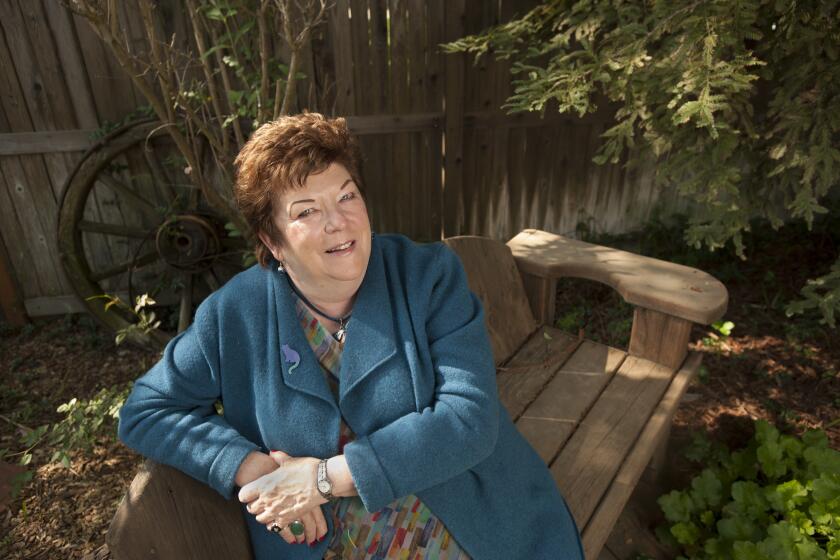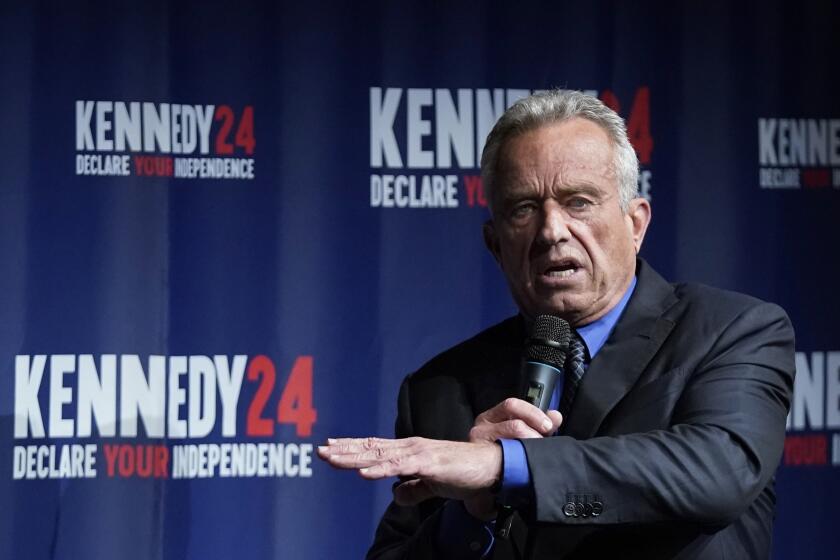Accord Reached on Pact on Radioactive Dumping
After four years of negotiations, the Deukmejian Administration and Assembly Democrats said Monday that they have reached agreement on a pact with Arizona that would permit both states to dump low-level radioactive waste in the desert of eastern California.
The agreement, which cleared its first obstacle in the Legislature when it won the unanimous approval of the Assembly Natural Resources Committee, would ultimately allow the state to prevent other states that are not part of the agreement from disposing of their low-level radioactive waste in California.
Under federal law, states that do not enter into exclusive agreements with other states will be required to accept such waste from elsewhere in the nation.
“It’s unfortunate it’s taken this long, but we are pleased it has passed its first test this session,” said Jim Morgan, a spokesman for the Health and Welfare Agency. “With this ‘marriage’ to the sister state of Arizona, we will not be the dumping ground for the Western world.”
The 1980 federal law that prompted the agreement with Arizona was designed to encourage states to develop disposal sites for low-level radioactive waste, which includes such contaminated items as clothing, plastic gloves, tools and medical supplies used by hospitals, laboratories and nuclear industries. The waste does not include fuel from nuclear reactors, but the radioactivity can take up to 100 years to decompose.
The agreement with Arizona stipulates that California will provide a dump site for 30 years to dispose of low-level radioactive waste from both states. After 30 years, California can decide whether it will continue disposing of the waste or turn the job over to Arizona.
Arizona is eager to enter into an agreement with California, officials said, in order to avoid having to open its own dump for such waste, at least for 30 years.
Once the agreement, contained in a bill by Assemblyman Steve Peace (D-Chula Vista), is approved by the California Legislature and signed into law by Gov. George Deukmejian, it must still be ratified by Arizona’s Legislature and governor. Arizona approved a similar pact with California earlier, but because of changes in Peace’s legislation, Arizona must vote on the agreement again.
Over the last four years, the compact was stalled in the California Legislature, largely by partisan politics. At one point, Democrats in the Assembly sought to put the dump in a Republican district, but Deukmejian refused to approve legislation with such a provision.
Because of the delays in California, Arizona made an agreement with South Dakota for the waste disposal and had entered into negotiations for a similar agreement with North Dakota.
Neither state, however, produces much radioactive waste. For example, South Dakota produces only seven cubic feet a year, compared to California’s 200,000 cubic feet annually, Morgan said. And as a result of their negotiations with Arizona, both of the Dakotas are likely to be included in the California-Arizona pact.
At present, California ships its low-level radioactive waste to Washington state.
U.S. Ecology, a firm under contract with California to develop a dump for low-level radioactive waste, has selected three potential sites, two in San Bernardino County and one in Inyo County.
Some residents in communities near all three sites have indicated that they want the dump because of the revenue and economic growth it would bring.
The San Bernardino County Board of Supervisors opposes the two sites in its county, however, as does Assemblyman Bill Leonard (R-Redlands), whose district includes both sites.
Nevertheless, Leonard voted in favor of the agreement with Arizona after Peace agreed to an amendment spelling out the Administration’s authority over the method of taking waste to the disposal site.
The bill was approved by a bipartisan vote of 8 to 0.
More to Read
Get the L.A. Times Politics newsletter
Deeply reported insights into legislation, politics and policy from Sacramento, Washington and beyond. In your inbox three times per week.
You may occasionally receive promotional content from the Los Angeles Times.






